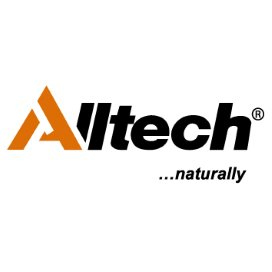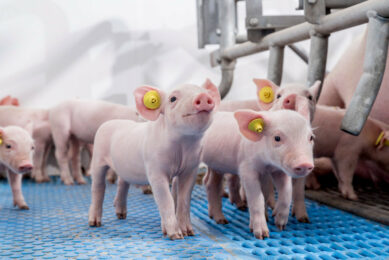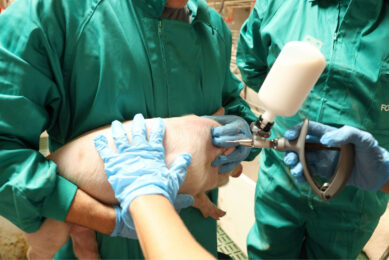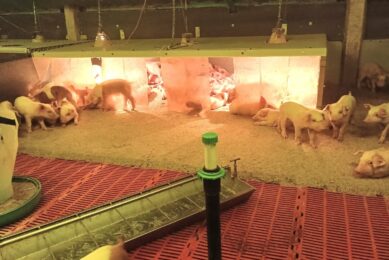The journey towards zero ZnO begins in the gut
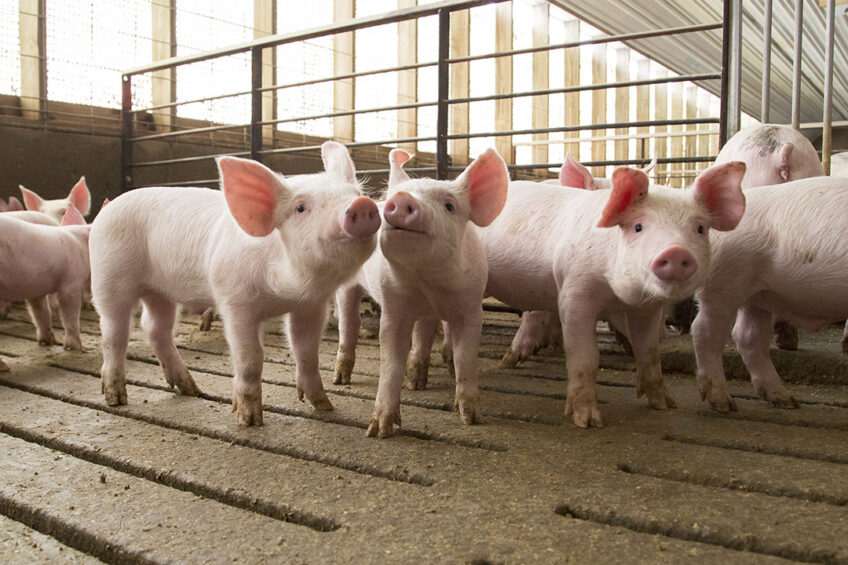
In the European Union, pharmacological levels of zinc oxide can no longer be applied in pig feed from July this year. The question now is how to get piglets through weaning well. One part of the answer lies in keeping the animals’ guts as healthy as possible.
In commercial pig production, the post-weaning period is frequently characterised by poor growth performance and diarrhoea, as the piglet quickly adjusts to new environmental and nutritional conditions (e.g. new nursery accommodation, a sudden dietary change from sow milk to a solid diet of different composition and feed form, a change in housing conditions). Following the stress experienced by piglets during this critical life stage is a damaging effect on both the gastrointestinal tract and immune system of piglets, and the reason that producers observe this “growth check” and increased susceptibility to diarrhoea after weaning.
Improving pig growth performance
Historically, antibiotic growth promoters were used in piglet feeds to improve pig growth performance in the initial period after weaning by controlling pathogenic Escherichia coli infections and, thereby, reducing the incidence of post-weaning diarrhoea (PWD). After the phase-out of antibiotics as growth promoters worldwide, the use of zinc oxide (ZnO) at medicinal levels (2,000 ppm or higher) in piglet diets was then recognised as an efficient and low-cost nutritional tool to help maintain gut disorders and performance losses at weaning.
ZnO at pharmacological doses banned
However, in more recent times, the prolonged utilisation of high dietary ZnO levels has been linked to environmental pollution, increased antimicrobial resistance, adverse changes in the piglets’ bacterial composition and microbiota, zinc toxicity and various other health concerns.
For these many reasons, using ZnO at pharmacological doses (above 150 ppm total dietary zinc) in piglet feeds will be banned in the EU beginning June 2022. Pig producers across the EU are now desperately seeking alternative strategies for preventing bacterial infections and alleviating PWD in their pig units.
A successful strategy starts with the gut
For producers to successfully transition away from ZnO, they need to ensure that piglets get off to a healthy start in life. A critical piece in the overall strategy to achieving this is to promote optimal maternal gut health and development, followed by supporting the gut health of the piglet as soon as possible after birth. The sow can often be overlooked when seeking alternatives to ZnO.
However, with over 40 years of research and technical experience in monogastric gut health, Alltech has designed comprehensive gut health management programmes specifically for sows, as we believe that maternal gut health is fundamentally linked to that of the offspring and, therefore, is an important determinant of the lifetime health, performance and survival of piglets.
Supporting animal performance
The gut health concepts are designed to support animal performance by promoting favourable microbial communities, building natural immunity and maximising growth. Once producers have achieved good gut health in their sow herd, they can then focus on supporting gut health in piglets by promoting favourable microbial populations within the gut (because the piglet gut microbiota is strongly correlated to performance parameters) and optimising gut morphology to ensure maximum nutrient absorption. So, overall, alternatives to ZnO should focus on modifying the gut microflora to establish more diverse and favourable microbial populations.
An approach to zinc oxide-free piglet production
In addition to working with pig producers on the adoption of a holistic on-farm strategy when transitioning away from ZnO (i.e. one that combines optimal feeding, management, health and welfare practices), working closely with those in the industry is essential to implement gut health programmes proven to help maintain a healthy gut and support the normalising of gut microbial communities in both sows and piglets.
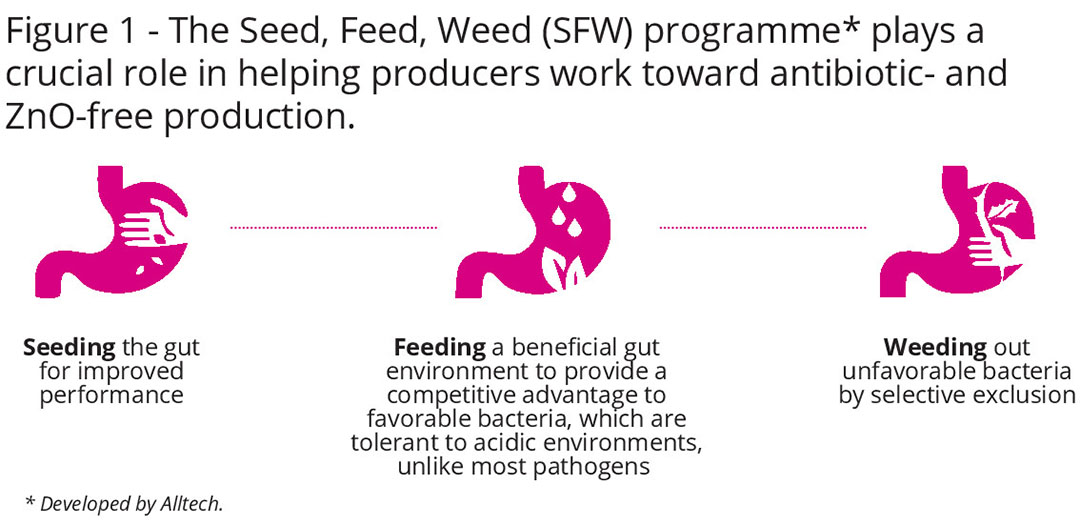
Feed additives
For example, incorporating feed additives such as Actigen (derived from the yeast Saccharomyces cerevisiae, Alltech) into the diet of gestating and lactating sows is proven to increase immunoglobulin content in sow colostrum, thereby supporting the gastrointestinal integrity and immunity of the suckling piglets. Recently, the company developed an early-life gut health programme for piglets, known as the Seed, Feed, Weed (SFW) programme (see Figure 1). The SFW concept is designed to modify the gut microbial population of piglets so that favourable and more diverse microbial populations are established as soon as possible after birth, giving newborn piglets the best start in life.
Benefits SFW programme
The benefits of the SFW programme have been demonstrated both commercially and in research studies, showing that it can play a key role in ensuring a smooth weaning transition in the absence of ZnO. For instance, results from recent research reported that the SFW programme reduced the attachment and adhesion of important pathogens, such as E. coli and Salmonella, to the intestinal cells of pigs.
Furthermore, supplementation of the yeast compound (which is a crucial component of the SFW programme) in pre-starter and starter diets has been shown to improve the gut structure of piglets, followed by a significant improvement in piglet growth and feed efficiency. In commercial settings, implementing the SFW programme has produced several benefits, such as an improvement in feed efficiency and growth rates (see Table 1) and reduction in mortality, while presenting no adverse effect on diarrhoea incidence.
Achieving optimal pig health
As June 2022 fast approaches, EU pig producers must reconsider how they achieve optimal piglet health and lifetime growth and begin to make the necessary changes on their units so they can successfully move towards ZnO-free piglet production. To ensure a smooth transition, with minimal performance and financial adjustments, producers need to implement a holistic strategy that encompasses optimal feeding, management, health and welfare practices. In addition, the importance of achieving a healthy gut in sows and piglets cannot be overlooked. An animal exhibiting good gut health is one that efficiently utilises feed with minimal production disruption, which will be vital in ensuring that piglets can thrive and survive in the absence of ZnO.
References available upon request.


